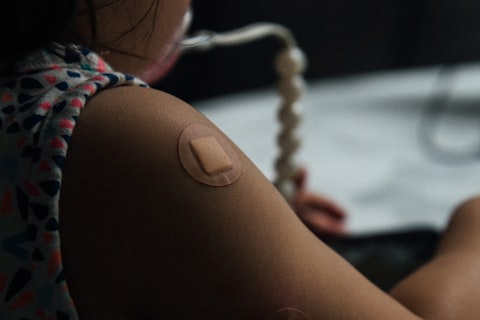The Relationship of Tonsils to Human Health
Introduction
Tonsils, the small masses of tissue located at the back of the
throat, play a significant role in the body's immune system. While often
associated with childhood infections and sore throats, tonsils serve as
a crucial line of defense against harmful pathogens. In this article,
we will explore the anatomy and function of tonsils, common issues that
can arise, and the importance of maintaining optimal tonsil health for
overall well-being.
Anatomy of Tonsils
Tonsils are part of the lymphatic system and consist of three main
types: palatine tonsils, lingual tonsils, and pharyngeal tonsils
(adenoids). The palatine tonsils, located on each side of the back of
the throat, are the most well-known. These structures contain immune
cells that help fight off infections and protect the body from harmful
bacteria and viruses.
Function of Tonsils
Tonsils act as the body's first line of defense against pathogens
that enter through the mouth and nose. They trap bacteria and viruses,
preventing them from causing infections in the body. Tonsils also
produce antibodies to help the immune system recognize and combat future
infections more effectively.
Common Tonsil Issues
Tonsils can become inflamed and infected, leading to conditions such
as tonsillitis. Symptoms of tonsillitis include sore throat, difficulty
swallowing, and swollen tonsils. In some cases, recurrent tonsillitis or
chronic tonsillitis may require medical intervention, such as
tonsillectomy (surgical removal of the tonsils).
Maintaining Tonsil Health
To keep tonsils healthy and functioning optimally, it is essential to
practice good oral hygiene, stay hydrated, and avoid exposure to
harmful pathogens. Gargling with salt water, consuming a balanced diet
rich in vitamins and nutrients, and getting an adequate amount of rest
can also support overall tonsil health.
Tonsil Care for Children
Children are more prone to tonsil-related issues due to their
developing immune systems. Parents should encourage good oral hygiene
practices, teach proper handwashing techniques, and ensure their
children receive timely vaccinations to strengthen their immune response
and reduce the risk of tonsil infections.
Tonsil Care for Adults
While tonsil issues are commonly associated with children, adults can
also experience tonsillitis and other tonsil-related conditions.
Maintaining a healthy lifestyle, avoiding smoking and excessive alcohol
consumption, and seeking prompt medical attention for persistent throat
infections are crucial for preserving tonsil health in adulthood.
Medical Treatments for Tonsil Problems
In cases where tonsil issues persist despite preventive measures,
medical treatments such as antibiotics, corticosteroids, or surgical
intervention may be necessary. Tonsillectomy is a common surgical
procedure used to treat chronic or severe tonsil infections that do not
respond to other forms of treatment.
The Role of Tonsils in Immune Health
Tonsils play a vital role in the body's immune response, helping to
protect against infections and maintain overall health. By supporting
the function of the tonsils through proper care and hygiene practices,
individuals can strengthen their immune system and reduce the risk of
recurrent tonsil issues.
Conclusion
In conclusion, the relationship between tonsils and human health is a
crucial one. These small but mighty organs serve as a key component of
the immune system, defending the body against pathogens and supporting
overall well-being. By understanding the anatomy, function, and care of
tonsils, individuals can take proactive steps to maintain optimal tonsil
health and promote a strong immune response for a healthier life.







تعليقات
إرسال تعليق